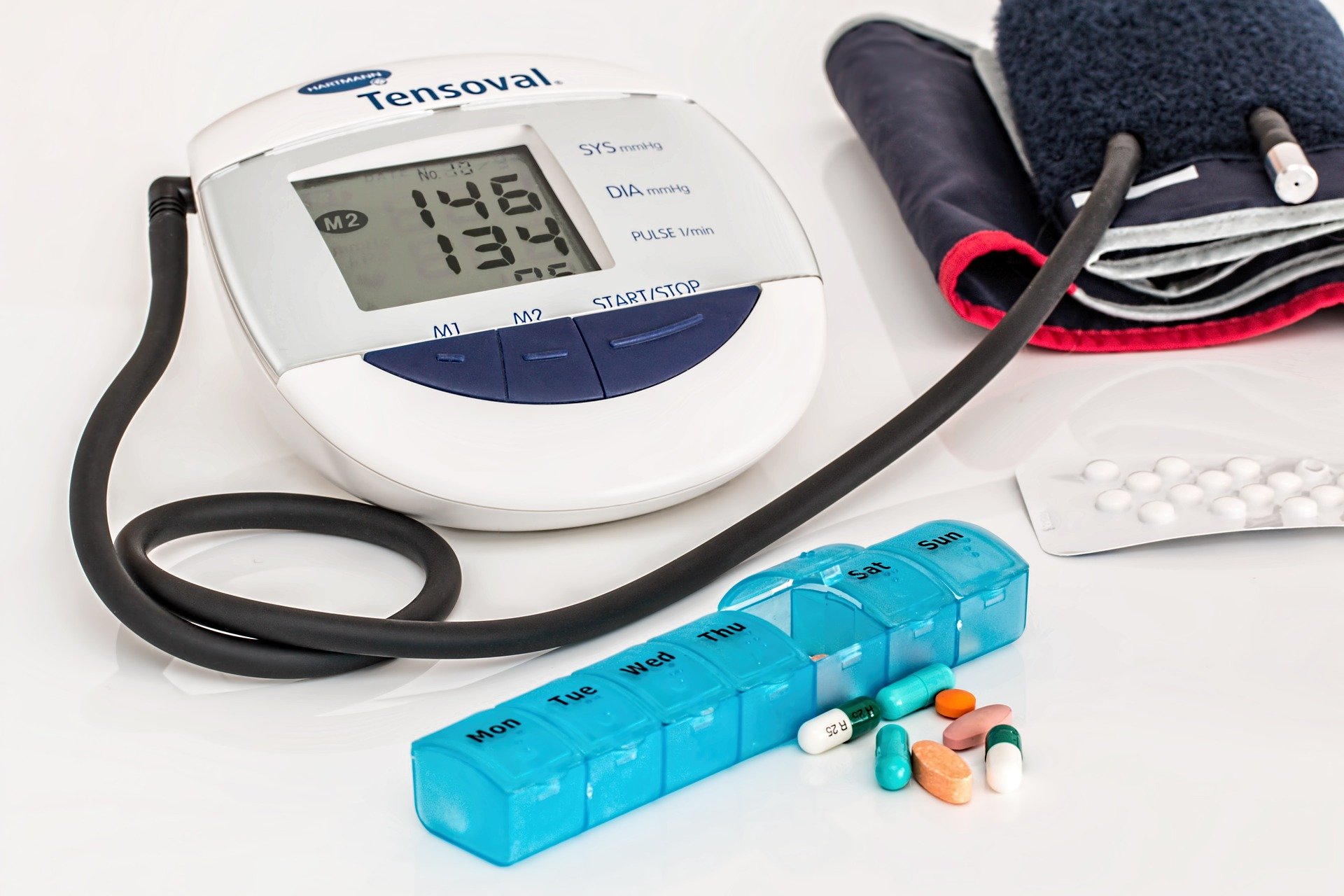Heart & Cardiovascular
MANAGING HYPERTENSION NATURALLY
By A.A. (staff writer) , published on September 05, 2021

Medicine Telehealth Health hypertension high blood pressure management of hypertension
The force at which blood pumps from the heart into the arteries is called blood pressure. According to various guidelines, 120/80 mmHg is considered normal blood pressure. When blood flows more quickly through the arteries this condition is indicated as blood pressure. This causes damage to the blood vessels by increasing pressure on the sensitive tissues in the arteries. According to the American College of Cardiology, roughly half of all adults in the United States suffer from high blood pressure, also known as hypertension. It's known as a "silent killer" since it normally doesn't exhibit symptoms until the heart has been severely damaged. Many individuals are unaware that they have hypertension because there are no apparent signs.
Management of Hypertension
Regular Exercise
A 30 to 60 minutes workout every day is a vital aspect of maintaining a healthy lifestyle. Regular physical activity improves your mood, strength, and balance in addition to lowering blood pressure. It lowers your chances of developing diabetes and other types of heart disease.
Consult your healthcare professional about a safe workout plan if you've been sedentary for a long time. Begin slowly and progressively increase the intensity and frequency of your workouts. If you don't like going to the gym? Extend your workout to the outdoors. You can still receive the benefits of a trek, jog, or swim. What matters is that you get going!
According to the recommendation of the American Heart Association (AHA) doing muscle-strengthening exercises at least twice a week is beneficial for heart health. Lifting weights, doing pushups, or any other workout that helps increase lean muscle mass are all important options1.
Quit smoking
After several minutes since you finish smoking a cigarette, the chances are higher than your blood pressure rises. Smoking cessation aids in the restoration of normal blood pressure. Smoking cessation can help you live a healthier life by lowering your risk of heart disease and improving your overall health. People who give up smoking may live longer than those who do not.
Stop taking caffeine
The impact of coffee on blood pressure is currently under discussion. Caffeine can increase blood pressure by up to 10 mm Hg in those who take it occasionally. Coffee drinkers, on the other hand, may have little or no influence on their blood pressure.
Whereas the long-term effects of caffeine on blood pressure are unknown, blood pressure may increase moderately. Monitor the blood pressure of a patient within 30 minutes of ingesting a caffeinated beverage to see whether it has increased. You may be vulnerable to the blood pressure raising effects of coffee if your blood pressure rises by 5 to 10 mm Hg. discuss the impact of coffee on your blood pressure with your doctor.
Manage your stress
High blood pressure may be exacerbated by chronic stress. To assess the impact of persistent stress on blood pressure, more study is required. If people respond to stress by eating unhealthy foods, consuming alcohol, or smoking, it might lead to high blood pressure.
Closely examine what makes you anxious and stressed, such as job, relationships, finances, or sickness. Discuss how you can remove or minimize stress once you know the reason behind it2.
Probiotics and Prebiotics role in Lower Blood Pressure
Previous research has correlated eating foods containing probiotics (consumable living microorganisms) to lower blood pressure. According to research, Yogurt is the clearest example of a probiotic. Perhaps people aren't as knowledgeable about prebiotics as they should be.” Prebiotics are foods that contain the precursors needed for bacteria to produce the unique compounds that are later absorbed by our systems, potentially reducing blood pressure.
Fiber may be prebiotic for a lot of bacteria, so when you consume fiber, the bacteria break it down to create those compounds." Prebiotics may be found in fiber-rich foods including garlic, onions, asparagus, whole-wheat pasta, and sweet potatoes3.
Consume more potassium
Low level of potassium in heavy fast foods, processed foods, carbs, potatoes, and meat, leads to high blood pressure. A daily potassium intake of 3,000 to 3,500 mg is suggested from meals like bananas, tomatoes, and other vegetables.
According to researchers, if you have a substantial renal illness, you should avoid consuming too much potassium since your kidneys may not be able to remove it.
Eat Less Salt
The majority of individuals consume too much salt without even noticing it. The average American consumes around 3,400 mg of salt per day, according to the American Heart Association. However, for people with high blood pressure, the recommended daily consumption is 2,300 mg, with an optimal limit of fewer than 1,500 mg per day.
If you have hypertension, even a little reduction in salt in your diet can assist improve your heart health and lower your blood pressure4.
Reference
- 7 Home Remedies for Managing High Blood Pressure. [Internet]. [Cited 2021 July 03]; Available from https://www.healthline.com/health/high-blood-pressure-home-remedies#exercise
- 10 ways to control high blood pressure without medication. [Internet]. [Cited 2021 July 03]; Available from https://www.mayoclinic.org/diseases-conditions/high-blood-pressure/in-depth/high-blood-pressure/art-20046974
- The Power of Gut Bacteria and Probiotics for Heart Health. [Internet]. [Cited 2021 July 03]; Available from https://www.hopkinsmedicine.org/health/wellness-and-prevention/the-power-of-gut-bacteria-and-probiotics-for-heart-health
- 5 Natural Ways to Lower Blood Pressure. [Internet]. [Cited 2021 July 03]; Available from https://www.pennmedicine.org/updates/blogs/health-and-wellness/2020/january/lower-blood-pressure-naturally
Find articles related to: Medicine Telehealth Health hypertension high blood pressure management of hypertension
More articles about Heart & Cardiovascular
Back to the Health Tips Index




